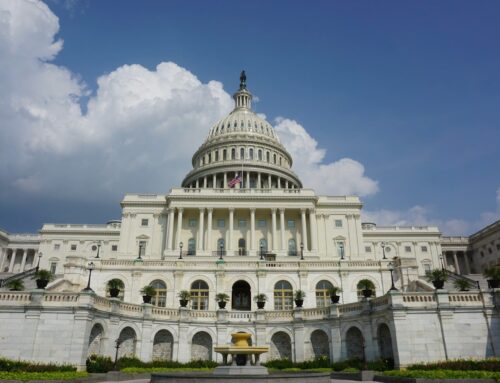Since the passage of the Legislative Branch Appropriations Act of 202 (P.L 117-328), the Government Accountability Office (GAO) is required to publish quarterly reports on improper payments in federal spending. The latest report, “Improper Payments: Key Concepts and Information on Programs with High Rates or Lacking Estimates“ (GAO-24-107482), the sixth since the law’s passage, offers a sobering analysis of fiscal year 2023.
Improper payments are those that shouldn’t have been made or were made in incorrect amounts. This broad category includes overpayments, underpayments, payments to ineligible recipients, and those lacking sufficient documentation to verify their propriety. In other words, it’s either money that’s gone astray, often with little hope of retrieval or instances where the government has not provided recipients their due.
Cumulative improper payment estimates by federal executive agencies have totaled about $2.7 trillion since fiscal year 2003. For fiscal year 2023, agencies reported an estimated $236 billion in improper payments, which represents a decrease from $247 billion in fiscal year 2022 and a significant drop from the peak of $281.4 billion in fiscal year 2021. Despite these fluctuations, the report notes that some programs have consistently reported high improper payment rates for consecutive years, indicating persistent issues in certain areas.
Sixteen programs reported estimated improper payment rates of 10 percent or higher for fiscal year 2023, with ten of these programs consistently exceeding this threshold for at least two consecutive years. For example, the Small Business Administration’s Paycheck Protection Program (PPP) – Loan Forgiveness hit a rate of 40.5%, while the Department of Labor’s Unemployment Insurance – Federal Pandemic Unemployment Assistance reported a rate of 35.9%. Additionally, nine programs identified as susceptible to significant improper payments failed to report any estimates for fiscal year 2023. New and temporary programs such as these are more likely to experience improper payments, due to the new systems they use and their targeting from malicious actors who seek to abuse the system.
On September 29, 2023, TCS sent a letter to the House Budget and Oversight Committees, emphasizing the persistent issue of improper payments in federal programs and suggesting measures for improvement. The letter underscores the need for pre-designed systems to handle emergency funds for programs like the PPP and Unemployment Insurance.
Agencies are required to submit plans describing actions to achieve compliance if found noncompliant with the Payment Integrity Information Act of 2019 criteria, including establishing accountability mechanisms and designating senior officials responsible for progress. The GAO has made several recommendations to Congress such as designating all new federal programs making more than $100 million in payments in any one fiscal year as susceptible to improper payments.
This ongoing struggle to plug the leaks in federal spending requires a concerted effort from all branches of government, echoing the timeless wisdom: “If you can’t measure it, you can’t manage it.”











Get Social